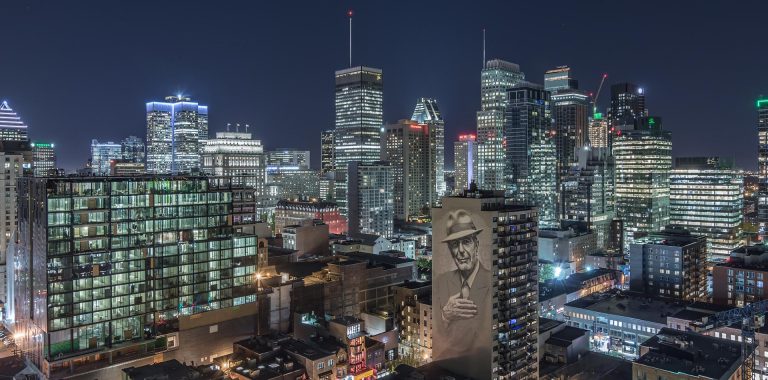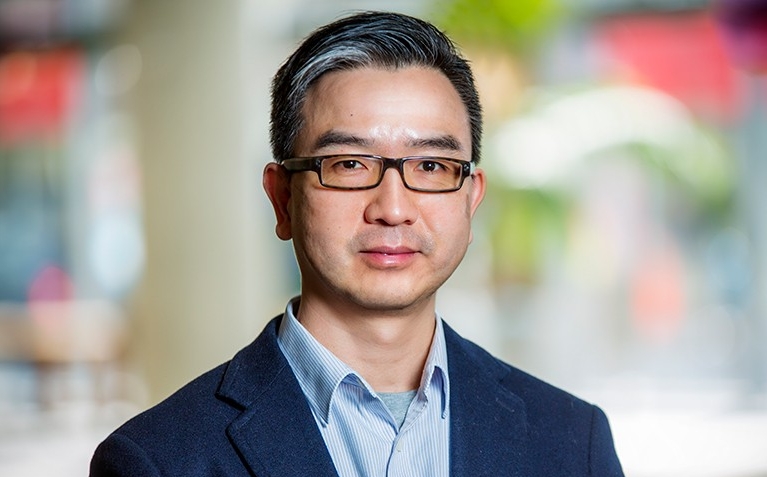Concordia hosts the hybrid-format International Conference on Building Energy and Environment

This summer Concordia is set to host its largest in-person conference since the start of the COVID-19 pandemic. The International Conference on Building Energy and Environment (COBEE) will take place at the Gina Cody School of Engineering and Computer Science on Sir George Williams Campus.
COBEE provides a global platform for initiating collaboration among researchers, environmental scientists, architects, facility managers and policymakers around the topics of building energy and environmental issues. The fifth edition of the conference was slated for 2021 but was moved to 2022 due to pandemic restrictions.
The conference is structured as a hybrid event this year, with an estimated 200 global delegates descending on campus between July 25 and 29.
Largest edition yet
Liangzhu (Leon) Wang, associate professor in the Department of Building, Civil and Environmental Engineering, is the conference’s general chair.
“This edition is proving to be the largest yet,” Wang says. “It’s exciting to have such a global discussion around timely topics with all the stakeholders that are part of these ecosystems.”
 Liangzhu (Leon) Wang, associate professor in the Department of Building, Civil and Environmental Engineering.
Liangzhu (Leon) Wang, associate professor in the Department of Building, Civil and Environmental Engineering.
The topics of the papers are diversified and cover energy, health and renewables in smart buildings and cities, and their resilience under impacts of climate change. These are reflected in the top-tier keynote speakers who will join the conference:
- Yuguo Li from Hong Kong University, member of the World Health Organization’s (WHO) COVID-19 infection prevention and control guidance development group and a member of the WHO’s Environment and Engineering Control Expert Advisory Panel for COVID-19
- Mat Santamouris from the University of New South Wales, Australia, who specializes in extreme weather and climate change, such as urban heat islands
- Andrew Persily from the National Institute of Standards and Technology (United States), who specializes in building ventilation systems and airborne transmissions
- Tianzhen Hong from Lawrence Berkeley National Laboratory (United States), who specializes in low-energy buildings and sustainable urban systems
- Colleen Mercer Clarke from the International Federation of Landscape Architects, who specializes in ecosystem-based approaches to advancing resilience to climate change
- Ian Beausoleil-Morrison from Carleton University, who specializes in building performance simulations and energy systems
- Michael Lacasse from the National Research Council Canada, who specializes in the resilience of building enclosures under the impacts of climate change.
COBEE 2022 by the numbers
550+
Submitted abstracts
400
Accepted papers
170+
Universities
38
Countries
Six
Continents
Making it memorable
The conference will provide an exceptional opportunity for people from the industry to get up to date on the latest research. It will also be the ideal setting for networking, relationship-building and knowledge-sharing.
“Our early-bird registration pricing is on until May 31 and I invite everyone, including students, to join us in person or virtually,” Wang says.
“Canada is well represented, with accepted papers from across the country. I’m now working on securing sponsorship partnerships to further showcase Canadian excellence to a global audience.”
Learn more about Concordia’s Gina Cody School of Engineering and Computer Science.
Explore the Centre for Zero Energy Building Studies.





